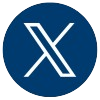Student Success Center
MS in Engineering Management and Leadership
Welcome!
As an online student, most of your interactions with the university will be done through various websites. For example:
- You’ll use your USD Email Address for all university-related communications.
- You’ll use Canvasfor all of your coursework and assignments. See Canvas Tips and Tricks Page.
- You’ll use your MySanDiego Portal for tuition payments and to access most campus resources.
- You’ll use this site, your Student Success Center, to get specific information about textbook information, deadlines, and more!
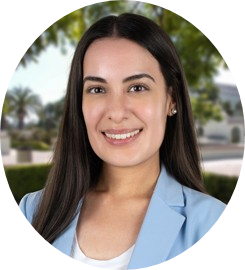

Your Academic Director
GB Singh, PhD
Schedule a meeting with Upma Saini, Assistant to the Academic Director
COMPLETE YOUR MANDATORY NEW STUDENT CHECKLIST
Our number one priority is you! Our team has prepared a checklist of items that will set you up for success and clarify all action items as a new student. After you are enrolled for your first term and receive a confirmation email from a member of our team, please complete and review all of the following before classes start.
1. View Your Mandatory New Student Welcome Webinar
This webinar will go over a comprehensive look at your program and what to expect as an online learner including resources and tips for success. Each webinar should last around 30-40 minutes. Once you have been registered for classes and receive a confirmation email from our team, you will be given the link to schedule your new student check-in call.
2. Schedule Your New Student Check-in Call
In this call, you’ll “meet” a member of your Student Success Team for your program. Once you attend the welcome webinar, you will be given the link to schedule your new student check-in call. This will be a chance for us to answer any additional questions you have before you start your first term. Please be sure to have any Canvas-related, program-related, or finance-related questions prepared.
3. Complete Your Canvas Orientation Course – Due August 30, 2024
Once you have been registered in your classes, you will be able to access your New Student Orientation Course on Canvas within 4 hours. When accessing Canvas, please make sure to use Firefox or Chrome as your browser.
The New Student Orientation course is designed to help you navigate your way around Canvas prior to beginning your first class. You will learn where to find the syllabus, course schedule, assignments, and discussion boards.
Your Orientation is mandatory, and must be completed before the first day of class—so we encourage you to get started! Please plan to spend about 8 hours completing the Orientation course. You can move through the Orientation at your own pace, so schedule your time accordingly.
Looking for assistance?
4. Finalize Your Tuition Payment Plan
We recommend that students start this planning early as some funding sources can take some time to process. Tuition payments should be completed in full by the first day of the semester. Visit the “Tuition and Payment Methods” section for more information.
5. Review your Student Handbook
Please make sure to review your student handbook prior to the first day of class, and reference it as needed throughout your program. The handbook is where you can find information on academic expectations, drop and refund policy, technology requirements, curriculum, frequently asked questions, and more.
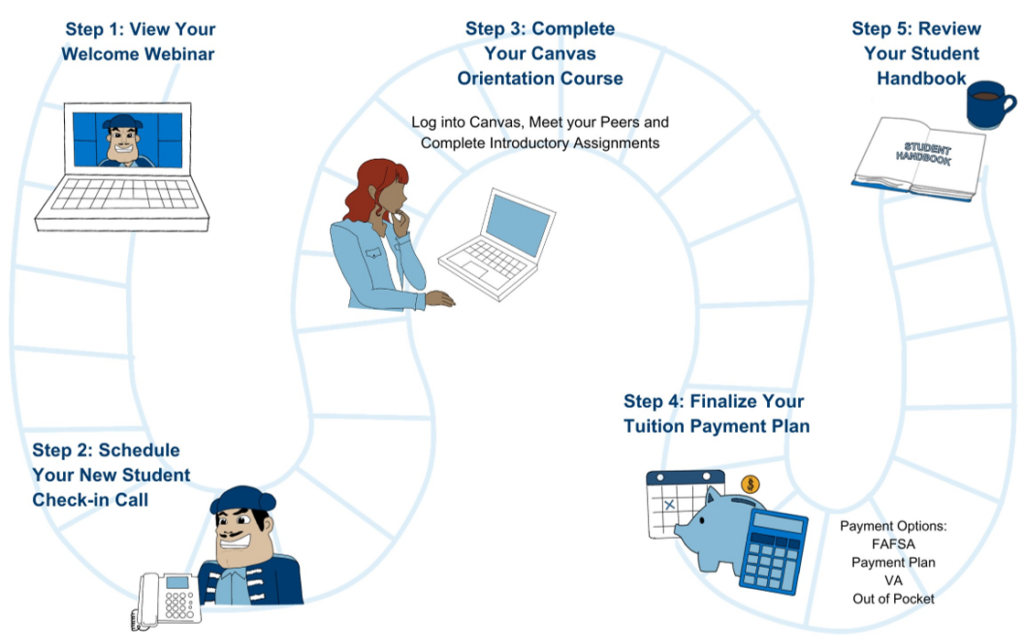
IMPORTANT DATES
Below is a list of significant dates regarding the registration process, payment deadlines, and other important academic and program deadlines.
Fall 2024 Dates and Deadlines
| Important Dates | Date |
|---|---|
| Application Deadline | August 2, 2024 |
| Registration Opens | July 1, 2024 |
| Registration Deadline | August 16, 2024 |
| Orientation Course Due Date | August 30, 2024 |
| Last Day to Drop with 100% Refund | September 2, 2024 |
| Payment Due Date | September 3, 2024 |
| Semester Begins | September 3, 2024 |
| First Course Start Date | September 3, 2024 |
| Last Day to Drop with 95% Refund/ Drop Deadline | September 6, 2024 |
| Last Day to Withdraw from Course A | September 30, 2024 |
| First Course End Date | October 21, 2024 |
| Second Course Start Date | October 22, 2024 |
| First Course Final Grade Submission Due Date | November 4, 2024 |
| Last Day to Withdraw from Course B | November 18, 2024 |
| Second Course End Date | December 9, 2024 |
| Semester Ends | December 9, 2024 |
| Second Course Final Grade Submission Due Date | December 23, 2024 |
Spring 2025 Dates and Deadlines
| Important Dates | Date |
|---|---|
| Application Deadline | December 2, 2024 |
| Registration Opens | November 1, 2024 |
| Registration Deadline | December 16, 2024 |
| Orientation Course Due Date | January 3, 2025 |
| Last Day to Drop with 100% Refund | January 6, 2025 |
| Payment Due Date | January 7, 2025 |
| Semester Begins | January 7, 2025 |
| First Course Start Date | January 7, 2025 |
| Last Day to Drop with 95% Refund/ Drop Deadline | January 10, 2025 |
| Last Day to Withdraw from Course A | February 3, 2025 |
| First Course End Date | February 24, 2025 |
| Second Course Start Date | February 25, 2025 |
| First Course Final Grade Submission Due Date | March 10, 2025 |
| Last Day to Withdraw from Course B | March 24, 2025 |
| Second Course Final Grade Submission Due Date | April 28, 2025 |
| Semester Ends | April 14, 2025 |
Summer 2024 Dates and Deadlines
| Important Dates | Date |
|---|---|
| Application Deadline | April 8, 2024 |
| Registration Opens | March 4, 2024 |
| Registration Deadline | April 19, 2024 |
| Orientation Course Due Date | May 3, 2024 |
| Last Day to Drop with 100% Refund | May 6, 2024 |
| Payment Due Date | May 7, 2024 |
| Semester Begins | May 7, 2024 |
| First Course Start Date | May 7, 2024 |
| Last Day to Drop with 95% Refund/ Drop Deadline | May 10, 2024 |
| Last Day to Withdraw from Course A | June 3, 2024 |
| First Course End Date | June 24, 2024 |
| Second Course Start Date | June 25, 2024 |
| First Course Final Grade Submission Due Date | July 8, 2024 |
| Last Day to Withdraw from Course B | July 22, 2024 |
| Second Course End Date | August 12, 2024 |
| Semester Ends | August 12, 2024 |
| Second Course Final Grade Submission Due Date | August 26, 2024 |
Download a pdf of your academic calendar
Class Registration Directions
You have most likely already filled out an Enrollment Agreement, which enables our team to register you for classes each term. No further action is required on your part.
If you are not able to register for both of your courses in a given term, please contact your program coordinator immediately. This often happens for students who need to take a leave of absence.
Textbook information
Students are required to have their textbooks on hand by the first day of class. Unless otherwise specified, students may select any vendor they prefer (such as Amazon.com, Half.com, Alibris.com, etc.) to purchase their course materials. In the event a specific vendor is required, it will be specified in the course materials list. The best way to ensure that you have the correct book is to search by the ISBN number(s) listed on the book list.
Physical copies of books are not on hand at the USD Torero Store. The USD Torero online store does offer price comparisons for different online vendors for some books.
Although all textbooks for all courses are listed, students only need to purchase the items for the classes they are taking for the semester.
Digital Inclusive Access (IA) – Integrated VitalSource Textbooks
If your course is indicated to have a “Digital Inclusive Access” textbook, you do have the option to use the integrated Vitalsource e-textbook without needing to purchase a textbook through an outside vendor. For more information, view the “Digital Inclusive Access” FAQs document.
- Students are able to access the e-textbook directly in the course without worrying about purchasing the wrong version or textbook!
- If your course is indicated as using “Digital Inclusive Access” on the textbook list, please note that you must opt-out within the first 7 days of each course to avoid being charged for the guaranteed-lowest price textbook.
- If you do intend to use “Digital Inclusive Access”, no further action is required after you create a Vitalsource account.
- No refunds can be issued once the textbook charge has been assessed.
By using Vitalsource e-Textbooks, students are able to use study tools in Bookshelf such as highlighting, printing limited pages/chapters, sharing notes, and using the Bookshelf CoachMe tool to test their learning while they read.
PAYing for your program
Tuition at USD is billed per semester, not per course. Payment (or enrollment in an official USD payment plan) is always due by the first day of the semester. Students may not carry balances from one semester to the next.
Accounts with outstanding balances after the official payment due date may be subject to course cancellations/removal or a student account hold during the semester; related holds can prevent upcoming registration, graduation, or obtaining transcripts.
Remember: tuition is always due by the first day of each semester.
Program Tuition
Once you have been registered for your courses, your student account will reflect the appropriate tuition costs according to your program. Your program’s tuition is the following:
- Per Unit (classes are typically 3-units) = $925
- Per Semester (assuming 6-units per semester) = $5,550
- Total Program Cost (including 5 semesters) = $27,750
Students who need to re-take or withdraw from a course may need to pay additional fees according to the Refund/Drop Deadline policies listed in your Student Handbook.
If you have any questions about your Student Account, please reach out to the One Stop Center via email at [email protected] or phone at 619-260-2700. All costs and fees are subject to change and are based on the academic year of enrollment.
Refund Policy
Students will be registered for their prescribed courses each semester. All courses must be dropped prior to the first day of the semester to receive a 100% tuition refund and within the first three days of the start date of the semester to receive a 95% tuition refund. No refund (reversal of tuition) will be provided after the third day of the semester for any class.
DEGREE PROGRESS and COMMENCEMENT
DegreeWorks
You can track your progress toward earning your degree using the Degree Works feature in your MySanDiego student portal. Degree Works shows you which courses you have completed, grades, cumulative GPA, any outstanding graduation requirements, and more!
To access Degree Works:
- Log in to your MySanDiego student portal.
- Under the “Torero Hub” tab, click on “My Academics.”
- On the right-hand side under “My Academic Resources”, click on “Degree Works.”
Petition to Graduate
Submitting your petition to graduate is a requirement for every student. About a semester before your final term, you will be reminded by your Program Coordinator to submit your petition to graduate. Once completed, your Academic Coordinator will review your academic record and contact you if there are any outstanding requirements or issues.
Commencement and Diploma Details
If you are planning on participating in the commencement ceremony (which means walking in your cap and gown here on campus), you will be invited to come to the University of San Diego in the month of May to participate in the ceremony. Commencement details and information will be sent from your Student Success Team around the month of February. Please note, there is only one commencement ceremony each academic year. Fall graduates will be invited to the commencement ceremony the May after they graduate, while Summer graduates will be invited to the commencement ceremony the May before they graduate.
The registrar will process their final audit of the degrees 6-8 weeks after grades are posted for your final semester. Once the degree is conferred in the system, the Registrar will order your diploma from the vendor and the vendor will send it to you directly to the address that was listed on your petition to graduate. Mailing time is an additional 6-8 weeks from the date of order, and you will likely receive your diploma in the mail in 3-4 months after you have completed your degree requirements. *Please note, if your mailing address changes after you submit your Petition to Graduate, please notify the Graduate Records office at (619) 260-2217 or [email protected].
Course Requirements
The 30-unit program will consist of ten courses. Courses will be offered year-round with three semesters every year; Spring, Summer, and Fall. Each semester will last 14 weeks. Students will take two courses per semester. Courses will run for seven weeks each with a one or two-week break in between semesters. This intensive format will allow students to focus on one course at a time and to still complete the degree program in 20 months.
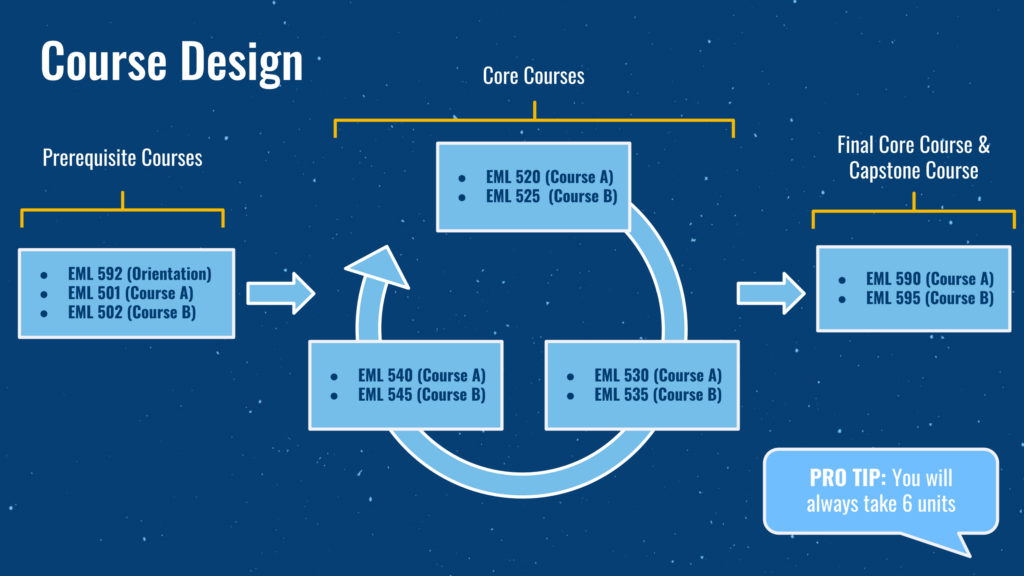
Course Titles and Descriptions
EML 501: Introduction to Technology and Engineering Management
Engineering managers often start by managing groups that are staffed with people whose education and experiences are closely related to their own disciplines. Eventually, they are asked to lead diverse functions including, product marketing, product development , program and project management, manufacturing and operations, quality and reliability, and technical sales. This course prepares those who are at the cusp of a vast expansion of their management responsibilities and prepares them for the challenges involved in bringing together opportunities and challenges involved in the development of organizations with diverse functions and skills.
EML 502: Introduction to Technology and Engineering Leadership
Leading others in a company, or even in a team, calls for knowledge, awareness, and a set of “soft” skills that can bring huge returns. This course is an introduction to leading– understanding, supporting, motivating, and guiding—technical employees. Class members will have an understanding of culture and leadership models as key differentiators for successful entrepreneurs and intrapreneurs.
EML 520: Emerging Technology Trends and Startups
This course provides a current view of emerging trends in the eco-system and how business models are pivoting to maximize the desired outcomes. The course highlights and compares early adoption, fast following, and exit strategies. Students will gain a deeper understanding of the technology life cycle and start-up ecosystem. Technology trending through the readiness level and associated capital management through incubation, acceleration, and venture capital routes are evaluated.
EML 525: Tomorrow’s Platforms, Products and Services
This course presents a view of technologies that will emerge in the market over the next decade and cause significant changes in process, efficiency, and automation. Five of the seven modules will be devoted to describing technologies and exploring their impact on customers and markets. At the end of the course, students will select one technology (that may relate to their jobs or interests) and conduct more detailed research on its specific impacts on the market.
EML 530: Competing Strategically
An Engineer’s career path in business leads to general management— guiding a business internally and externally. It starts with understanding the market structure and evolves into managing competitive performance, or profit-and-loss (P&L). This course covers the fundamentals of competitive strategy, market access, business development, and market positioning. Accounting, finance, performance measures, and decision-making are examined and applied in the context of how to remain competitive.
EML 535: Building Resilient Technology Businesses
The impact of the pandemic on businesses has been more widespread and stressed strategy, planning, and execution. This has forced companies to develop new paradigms for absorbing stress, recovering critical functionality, and building back a thriving business in altered circumstances. This course will address the development of strategies and plans that build business and technology resilience for global or regional events (e.g., pandemic, climate change, war) that could last for months, result in extended travel and transport shutdowns, and prompt lasting changes to how a company operates and where its employees work. The course offers a deeper insight on how to be “Future-Ready”.
EML 540: Value Chain of Engineering Organizations
This course reviews the platform for a company’s operations: the organization’s structure and culture. It includes differentiation and integration of tasks, and expectations for the company’s and members’ behavior, values, underlying strategy, and- in some cases- leaders whose conduct is held as exemplary. This course delves into the importance of quality as culture and empowerment obtained through accountability.
EML 545: Sustainability, Ethics and Compliance
Engineering managers initially manage functions within the business. Leaders must manage their companies in an effective, profitable way for their employees and shareholders. They are also expected to act ethically and consistently within the values of our society. Environmental social governance with sustainability at the forefront of decision-making is a required skill. This course allows students to survey the management decisions that have ethical and social responsibility implications. It emphasizes routine issues where the implications are important but may not be obvious.
EML 590: Decision Analysis
This is an introductory course in Decision Analysis and provides the tools required to make informed and rational business decisions. The course contents are designed to leverage historical company data (and other market data) to enable the application of formal analysis for decision-making and forecasting.
EML 595: Capstone Project Experience
The Capstone course is the opportunity for students to apply knowledge and skills learned in their courses throughout the program. It is designed to be practical—involving an experience with an actual company, and integrative—drawing on lessons from across all courses in the MS-EML program.
Student Resources
This list is helpful resources that will set you up for success. Haven’t written in APA formatting since your undergraduate program? We’ve got you covered! Want to know what type of computer you will need? No problem. We have listed helpful resources below.
Technical Requirements
You must own or have unrestricted access to a computer for this program. A fast Internet connection is also mandatory.
Courses will utilize a variety of technologies and multimedia. To complete course activities and to access course content, please verify that you have the following technologies and plug-ins available:
- Browser Plug-ins – Windows Media Player, QuickTime, Shockwave, Adobe Reader, and Java.
- Mozilla Firefox is the recommended browser.
- Microsoft Office is required. If you are using Office 2003 or earlier, download and install the Microsoft Office Compatibility pack.
- Speakers or headset – to listen to multimedia.
- Webcam – for recording video.
- Email – To contact your faculty.
- High-speed internet connection strongly encouraged (DSL or better)
Graduate Writing Expectations and Tips
All writing assignments must be formatted according to APA standards. Discussion posts must contain the appropriate APA citations. If you want additional writing support, we recommend Purdue Online Writing Lab (OWL@Purdue). In addition to general writing support, the website includes a special section dedicated to APA formatting guidelines.
Another helpful writing resource is the School of Leadership and Education Sciences (SOLES) Graduate Student Writing Center. Enrolled students can submit assignments for review by a writing professional.
Download Microsoft Office 365 (Free for USD Students)
Students at the University of San Diego are able to download Microsoft Office 365 for free! If you don’t have it already, you can download the Microsoft Office 365 suite using your USD student email.
TimelyCare – Telehealth for USD Students
TimelyCare is a provider of 24/7, no-cost telehealth services for USD students to address common conditions that can be safely diagnosed and treated remotely. TimelyCare services are available at no cost to the student. Services include:
- Live and on-demand self-care sessions (yoga, breathing, stretching)
- Access to on-demand counselors for emotional health support
- Access to schedule a session with a licensed counselor (up to 12 times per year)
- View the Nurturing Balance Webinar Recording to learn about more resources
MS-EML Student Handbook
The handbook is where you can find information on academic expectations, drop and refund policy, technology requirements, curriculum, frequently asked questions, and more.
External Tutoring Resource
USD does not offer subject-specific tutoring resources, so students who are looking for tutoring support are encouraged to identify a tutor using Wyzant.com. Please note that Wyzant is not a USD-managed resource, so use them at your own discretion.
Student Code of Rights and Responsibilities for Graduate Students
It is the policy of the University of San Diego to adhere to the rules and regulations as announced in this brochure or other University Publications. The University nevertheless hereby gives notice that it reserves the right to expand or delete or otherwise modify this online publication whenever such changes are adjudged by it to be desirable or necessary. Changes will be made periodically as needed.
USD Economic Resources List
USD’s Case Management team has compiled a list of on-campus (local to San Diego) and national economic resources to help students find assistance with a variety of life aspects such as housing, food, mental health, parenting, etc. If you have a need or concern that isn’t addressed by the resources included in this list, please reach out to your Program Coordinator for further assistance. Based on the support, we may refer you to schedule an appointment with a case manager.
First-Generation Student Resources
USD welcomes first-generation college and first-generation graduate students. Please view the resources below to connect with your first-gen peers!
- Visit the USD First-Generation website.
- Free & Virtual First-Generation Graduate Student Symposium.
- Instagram accounts: @usd_fgsa and @usdfirstgen.
- Contact the First-Gen Action Team at [email protected]
Military Student Resources
USD provides student-focused services to all USD military-connected students, including student veterans, active-duty, dependent children, and spouses.
- Get started by requesting your Request to Certify each semester.
- Explore Military Scholarship Opportunities.
- Join the Student Veteran Organization .
- Leverage the partnership between USD and 50strong that brings together employers and veterans.
- Upon graduation, connect with the Alumni Veteran Network
USD Campus Partner Email Opt-Out
Get too many emails? Follow our email opt-out guide to optimize your USD email experience.
DACA/Undocumented Student Resources
- Please view the USD information trifold for current and prospective students. It is also available in Spanish.
- Review this website which includes some useful information and connections to the undocumented student community, state and national policies, information on graduate and professional school access, retention and success. It is a living document that will be updated regularly and include any new resources that campuses and organizations develop.
Academic Standards for Artificial Intelligence (AI)
- With the rise of AI writing assistants, students must ensure that they use this new technology ethically and honestly. Consult this document for guidance.
University of San Diego Campus Resources
- The USD Campus is available to all of our students and includes these additional resources.
Canvas @ USD
In your program, you can think of Canvas as your virtual tool to share information with professors and peers. You will use Canvas to access your course content, find course syllabi, review your assignments, and more. Be sure to use your USD credentials to log in. If you have any difficulty logging into your course, be sure to contact ITS at (619) 260-7900 or [email protected].
Netiquette Guidelines
The concept of netiquette covers proper communication online. Read our guidelines to help cultivate a supportive and productive online environment.
your partners toward success
At USD, you join a community of individuals who are all committed to one common goal: your success. As you familiarize yourself with your team, take the opportunity to virtually meet and connect with the resources available to you as a student. Click on the profiles below to learn more about each office or staff member and watch a brief video about their role in supporting you through graduation.

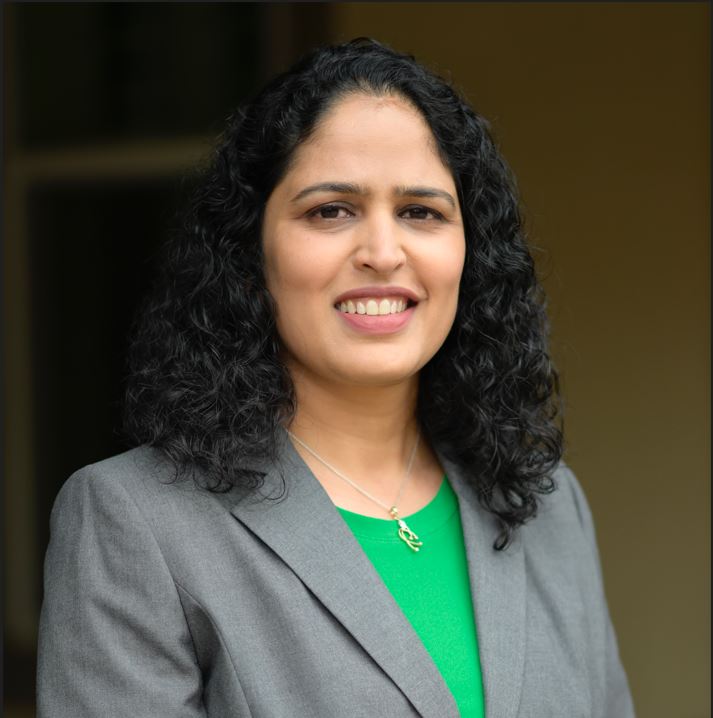


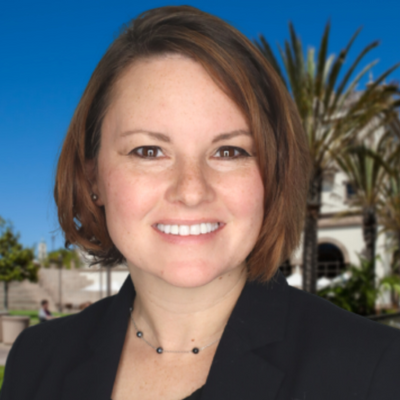










USD Quick Links
- USD Directory (For Faculty or Staff Contact Information)
- One Stop Student Center
- Health and Wellness
- SOLES Graduate Writing Center
- Military and Veterans Program Center
- Disability and Learning Difference Resource Center
- Copley Library
- Career Development Center
- Campus Recreation (Remote and On-Campus Classes Offered)
Career and professional resources
Whether you’re hoping to find a new job or earn a promotion, USD has a wealth of resources available to prepare you for your dream role.
Frequently Asked Questions
How much is my tuition?
Tuition for the MS-EML program is $925 per unit.
Tuition amounts shown on this website, or in other university publications or web pages, represent tuition and fees as currently approved. However, the University of San Diego reserves the right to increase or modify tuition and fees without prior notice and to make such modifications applicable to students enrolled at USD at that time as well as to incoming students. In addition, all tuition amounts and fees are subject to change at any time for correction of errors. Please note that the displayed tuition covers only the cost of courses, and additional expenses such as books and other fees are not included.
How many units is my program?
The MS-EML program is a total of 30 units.
Students will enroll in two prescribed 3-unit courses each semester for a total of 6 semester units.
Is this a full-time or part-time program?
The University of San Diego considers 9 or more units as full-time student status. Your program is designed to be part-time, and students enroll in just 6 units per semester. There is no full-time option for this program.
How do I register or drop classes?
All students are manually enrolled each semester by the USD Student Success team. If you are not able to enroll for a term or if you need to drop your courses, it is your responsibility to notify your Program Coordinator. All students will be held to the respective drop deadlines and refund schedule detailed in your Student Handbook.
Where do I find my bill and how do I pay it?
Login to your my.sandiego.edu student portal. Under the “My Student Account” tab, review the tutorials for directions on how to view and pay your bill, set up a payment plan, and enroll in eRefund (Direct Deposit). View the “Tuition and Payment Methods” on your Student Success Center for further details.
Where can I view my final grades?
Log into your my.sandiego.edu student portal and navigate to the “Torero Hub” section on the sidebar. Click on the “My Academics” tab and locate the “View My Grades” link in the top-middle section. Alternatively, you can view your program progress at a glance using the “Degree Works” link.
If you notice a grade inconsistency between Canvas and your MySanDiego portal, please email your instructor to verify what the final grade should be. Your instructor has the ability to update the posted grade.
How do I see my degree plan and track my progress?
Log into your my.sandiego.edu student portal and then use the “Degree Works” link to view your degree audit.
You can find the “Degree Works” link in the Torero Hub under the “My Academics” page. If you are interested in requesting a tailored degree plan, please email [email protected].
What if I need to take a break from courses?
If you need to take time off from your program, please email your Program Coordinator or the Student Success team at [email protected]. Since you have submitted your enrollment commitment, our team will automatically register you in courses each term unless you have previously notified the team about taking a break.
How do I order transcripts?
To order your official, unofficial, or e-transcript(s), view the transcript ordering options page. Otherwise, you can view unofficial/order official transcripts through your MySanDiego portal. Under the “Torero Hub” sidebar option, click on the “My Academics” page, then click on “Request Official Transcript” under the “My Classes” section.
When will I get my diploma?
Congratulations on finishing your program! Diplomas are mailed about 6-8 weeks after the degree requirements have been met and processed. Diplomas are mailed to the current address on file at the time degree requirements are completed. (To check your address information, login to your my.sandiego.edu student portal and view your personal information under My Torero Services.)
You will first be emailed a copy of your e-diploma from Parchment prior to receiving your mailed physical diploma.
Who do I talk to if I have additional questions or concerns about my program?
Throughout your program and after graduation, your Student Success team is here to help! We recommend contacting your Program Coordinator directly, but you can also email our team address at [email protected].
In addition to our team, your Academic Director is a great resource!
Where can I find some writing resources?
All writing assignments must be formatted according to APA standards. Discussion posts must contain the appropriate APA citations. If you are unfamiliar with APA formatting, or simply require additional writing support, we recommend referencing the Purdue Online Writing Lab (also called OWL@Purdue). In addition to general writing support, the website includes a special section dedicated to APA formatting guidelines.
To further support your writing, we highly recommend using the School of Leadership and Education Sciences (SOLES) Graduate Student Writing Center. Students are encouraged to submit written course assignments via the digital submission form for online feedback from a professional writing coach. See site for details.
What should I do if I miss a week of class?
This course moves very quickly, and it is important that you turn in all assignments on or before their due dates. If, because of an emergency, you have missed a week or more of course work, please contact your professor immediately to inform them. While there is no guarantee that you will be allowed to make up your work, informing your professor early is the best way to get back on track and finish your course successfully.
Please do not wait more than a week without informing your professor. If your instructor’s email is not already visible on the Canvas course, please use the USD directory to find their contact information.
What can I expect for deadlines in my course?
The 7-week courses traditionally follow a weekly pattern with three important days:
- Tuesdays – When the class/modules start. It’s recommended to read the Module Overview, review readings/media, and begin to think about ideas for the discussion board.
- Fridays – When the initial discussion board posts are due. Remember that posts are due before 11:59 PM PST.
- Mondays – When discussion board replies and assignments are due. Most discussion boards expect 2 replies per week.
Please note that there may be some exceptions to this structure. Always refer to the syllabus for deadline details. Please contact the course instructor with any questions.
What are the course surveys? Do I have to complete them every course?
The course surveys are an opportunity to give your feedback on the course assignments, instructors, pacing, workload, learning management system, accessibility, etc. The feedback is reviewed by school leadership and used to determine how courses should be improved for future iterations. All surveys are completely anonymous – which is why your instructors have to make public announcements asking for everyone to submit their surveys. Feedback in the survey will not affect your final grade.
Course surveys traditionally open during the final weeks of the course and close before final grades are posted. The instructors and USD Student Success Team will remind you to complete these surveys for each class. Your program appreciates the time you take to improve the student experience!


